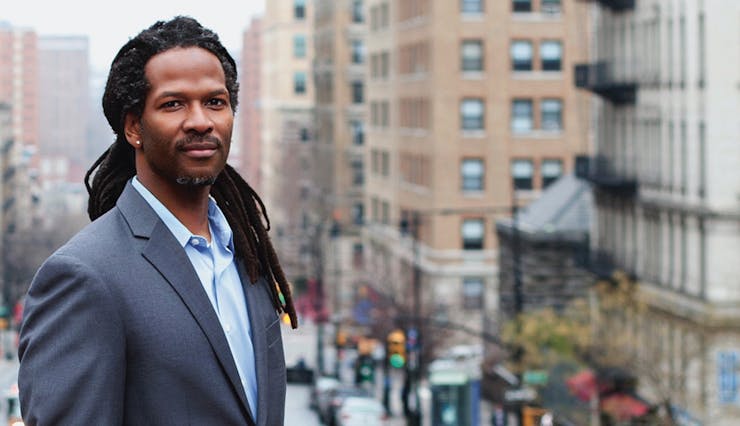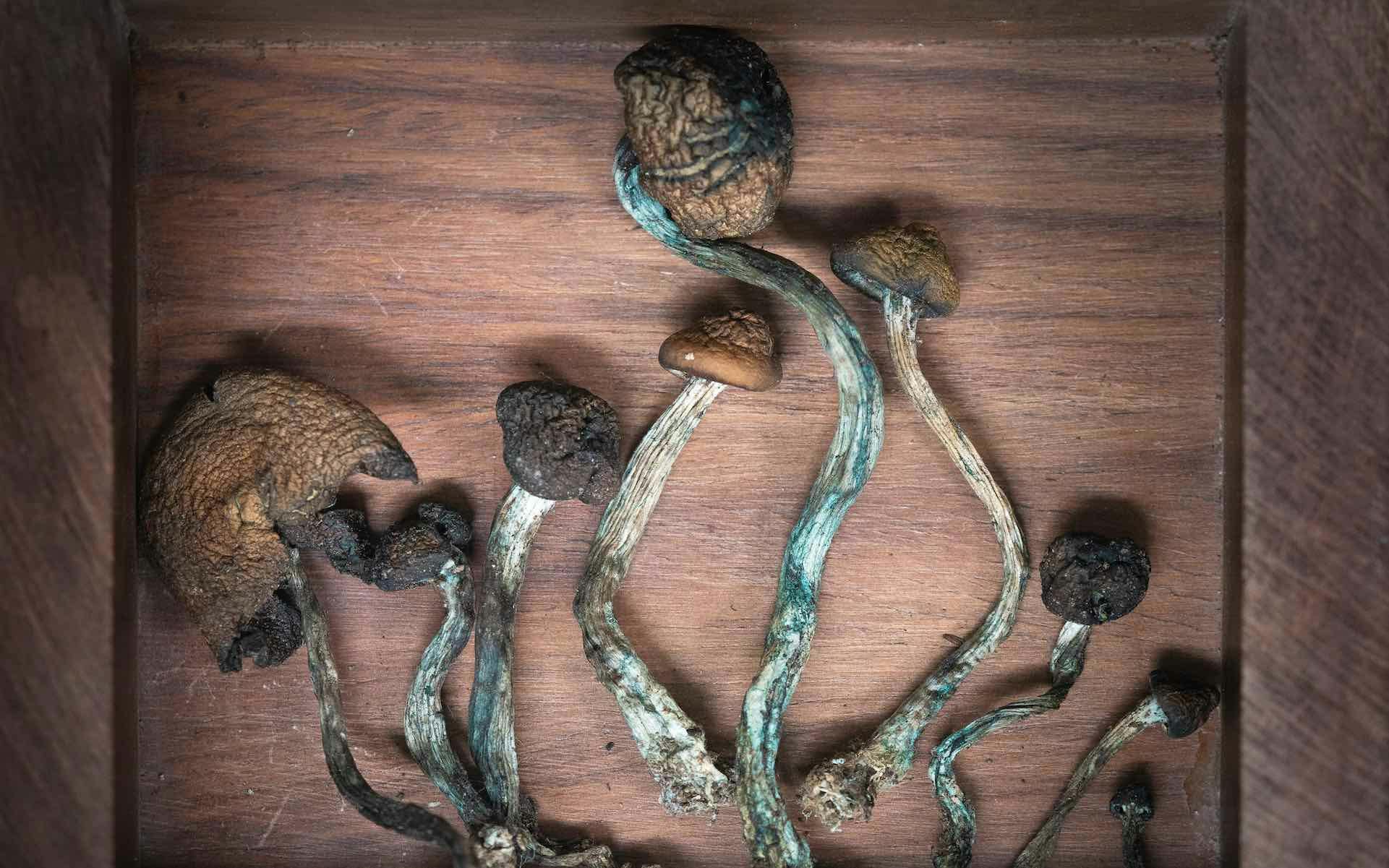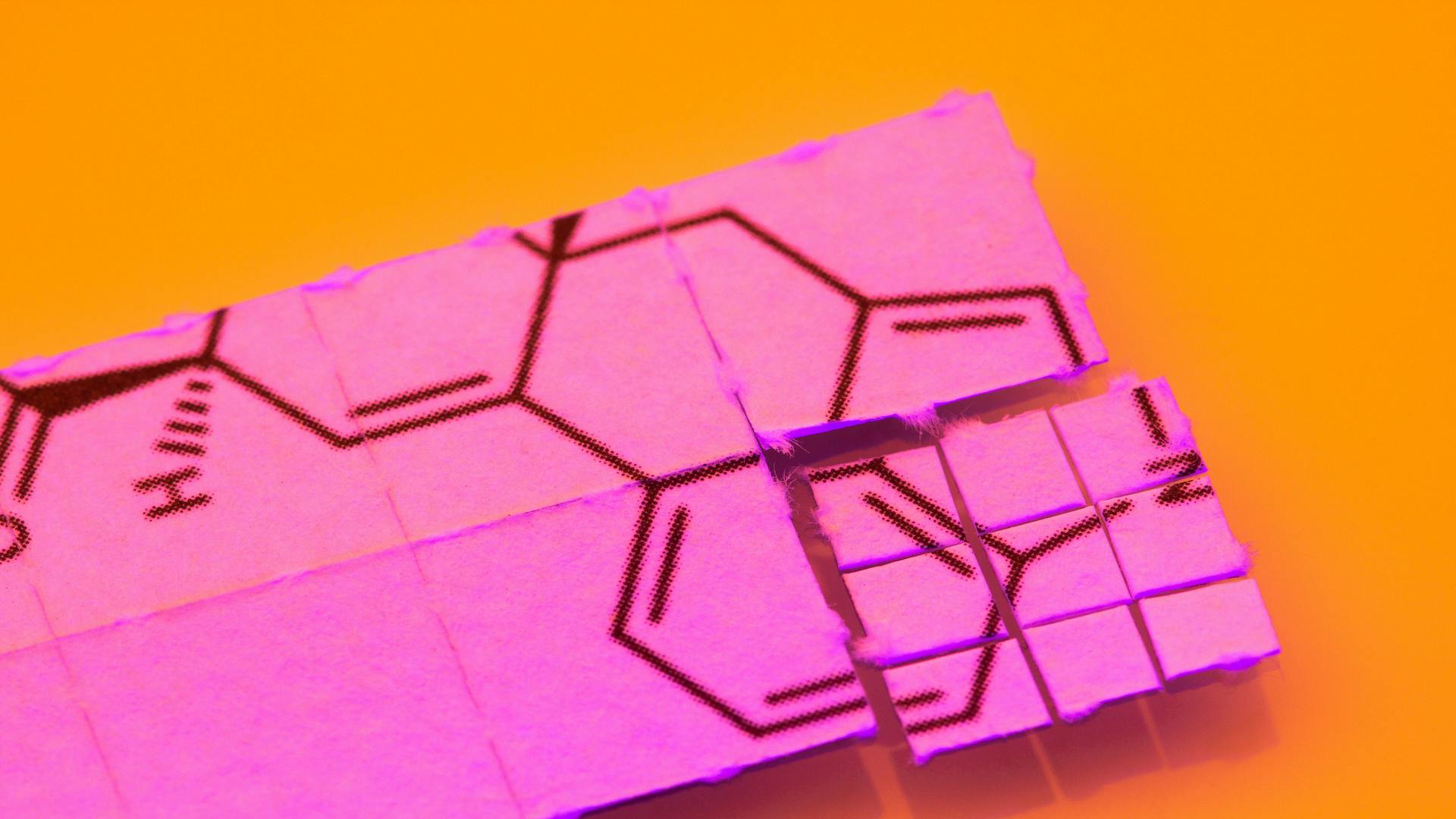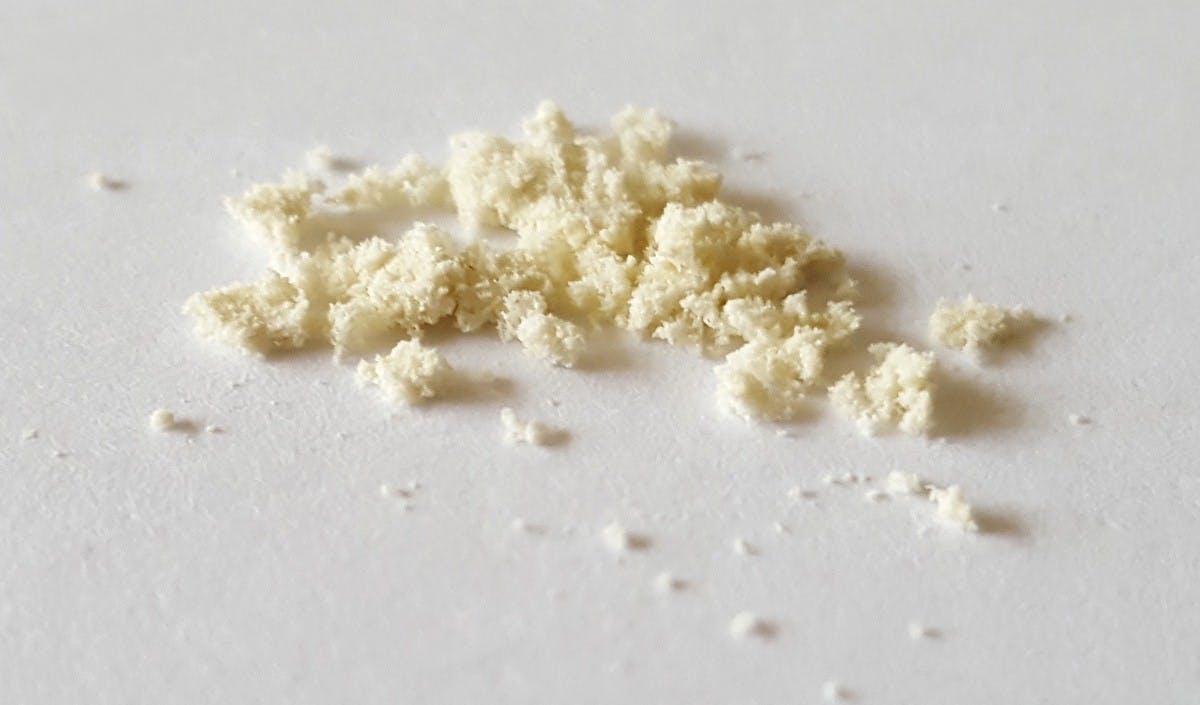Drugs are getting legalized left and right these days. Cannabis, though still federally illegal, is getting legalized by state governments at a rapid rate. Many cities have decriminalized psychedelics, and the state of Oregon has decriminalized all drugs and is currently setting up a framework for administering psilocybin in a clinical setting. A clinical trial on MDMA is set to finish in 2022, which could lead to FDA approval.
It feels like there’s something real happening, but possibly even corrupt. If you don’t have the eyes, ears, and brain to notice, you won’t. Dr. Carl Hart for sure notices.
Who is Dr. Carl Hart?
Dr. Carl Hart is an American neuroscientist, psychologist, and expert on substance abuse and responsible adult drug usage. He’s currently the Chair of the Department of Psychology and the Dirk Ziff Professor of Psychology (in Psychiatry) at Columbia University.
Dr. Hart has been in the field for over thirty years, and in that time, he’s authored two incredible books: High Price: A Neuroscientist’s Journey of Self-Discovery That Challenges Everything You Know About Drugs and Society (2013) and Drug Use for Grown-Ups: Chasing Liberty in the Land of Fear (2021).
Because of his expertise, Dr. Hart has been featured in plenty of documentaries on both cannabis and drugs in the United States. His appearances include The House I Live In (2012); Take Your Pills (2018); Grass Is Greener (2019); and Crack: Cocaine, Corruption & Conspiracy (2021), just to name a few.
Dr. Hart’s mission is not to tell you to do drugs, it’s to create a world for people who do drugs to be able to do so safely, freely, shamelessly, with all the necessary education available, and without getting incarcerated. I knew he’d be the perfect person to discuss the current and future state of drugs in America with.
Here’s the audio of our full conversation, and an edited transcription follows.
Danté Jordan: How long do you think it’s going to take for the government to legalize cannabis federally? Can the prison system afford to legalize cannabis?
Dr. Carl Hart: I don’t think it’s going to happen. Not in your lifetime, not in my lifetime. I don’t know what it would take because the logic and the science is all there. And even states are making money off of it. So I’m afraid I can’t answer that because [cannabis prohibition] seems too important for law enforcement.
Shop highly rated dispensaries near you
Showing you dispensaries nearI think the Sha’Carri Richardson case shows that we don’t really want to acknowledge our hypocrisy. Everybody knows that that woman should be competing in the Olympics, but if she competes then we have to acknowledge that we’ve been wrong in a more clear way than we have been with these states.
With her case, it’s almost like, in 1987, the Supreme Court looked at [McCleskey v. Kemp]—it was a case in Georgia where they brought evidence showing that if you’re Black you’re so much more likely to be executed. They had all of this data, and the Supreme Court basically said, ‘Well, we can’t have too much justice.’ They declined to do the right thing and make sure there was no racial discrimination in Georgia with the death penalty. They punted on it basically, and that’s what we’re doing with marijuana, in that we don’t want to acknowledge that we’ve been wrong and that we should go about correcting it.
You cannot give less-than-well-educated white guys that kind of authority over Black guys who they see they’re in competition with. We all know that model is screwed up and we know who’s going to lose, but we haven’t been willing to make the adjustments and do what’s right, and cannabis is in the same way like that. We haven’t been willing to acknowledge it publicly and nationally. Instead, we’ve been able to get away with legalizing in predominantly white states.
DJ: Why do you think the mainstream acceptance of psychedelics is moving so much more rapidly than cannabis?
CH: The people who are writing on this subject are primarily white, middle-class, educated men. And there’s nothing wrong with being that, it’s just that their drugs of choice are these psychedelics. And they write more favorably about those drugs, and they’re more willing to vilify other drugs. And that’s the reason. They are the opinion makers and the opinion makers shape how people feel about a number of things in this country.
DJ: I feel psychedelics moves faster than cannabis because cannabis was associated with Black and Brown people, versus psychedelics was painted as this white hippie thing. So a lot of the white hippie people have now grown up into suits that are in boardrooms making power decisions, versus cannabis still being viewed as this Black people, hip-hop drug thing. I think because of that it’s so much easier for America to paint psychedelics in a different light than cannabis. And that’s why people are so much more interested in trying them and they’re open to them, and that’s why all this big investment and all of these things that are happening with decriminalization.
CH: That’s absolutely true. The thing is, is that in a lot of these states that have legalized, people see the tax revenue and money always trumps anything in the United States. Slavery was about money and those things, so it’s the same here, it’s about money. As long as we can make money off of it, then we will say, it’s OK.
But, in the South, you still have this fight with cannabis, because you have a larger Black population in the South, and the law enforcement communities, they’ve been coming out strongly against liberalizing cannabis laws because the smell of cannabis is one of the main reasons for probable cause, and you take away that, then they can’t fuck with people for no reason at all. And so, that’s why they’re fighting it.
Yeah, the cannabis thing, it’s an interesting thing to watch, because I watch people like Seth Rogen on TV shows and he still gets the mainstream shows, but he’s an artist, so he gets a pass, same with Snoop Dogg… But still, hosts like Stephen Colbert, Jimmy Fallon, Seth Meyers, all those guys, they act like children when it comes to drugs and they do stupid-ass jokes, adolescent jokes that nobody’s really gone in on them with, and they are the real problem.
It’s maddening watching these guys be allowed to shame, if you will, drug users. We talk about fat shaming, we talk about shaming people for their looks, but you can still shame drug users. And it’s quite remarkable how this is going down. And when these same people have their glass of alcohol on their shows, it’s like, ‘Wow, this is really something else.’ And nobody is really calling them out on it.
DJ: Do you think it’s because those people are appealing to, or targeting, middle America, where all of this is foreign, versus on the West Coast where weed is just weed?
CH: I think the country, pop culture, no matter where you are at, I think they want to reserve the right to be able to vilify people for their drug use. We are really trying hard to delineate where drug use is OK—oh, you’re going to use Ayahuasca in the middle of some jungle with somebody who told you that they are native, or whatever, and you believe it, and he’s like Jack from Brooklyn, but you believe it, and that’s real, that’s cool; versus, somebody else is doing DMT on his own, and they’re just chilling, but that’s not cool.
So, I think society wants to reserve the right to be able to vilify people for their drug use; so they’re trying to just put the boundaries around what they consider appropriate. But historically, society has always used drugs to vilify those people on the margins. And so, that’s why it upsets me, when people start to vilify anybody for their drug use, for what they put in their bodies.
DJ: What do you think the future of things like psilocybin and LSD and ketamine are like on a retail front?
CH: I don’t think ketamine is going to be like that. I think that you might be able to get mushrooms and that might vary in terms of psilocybin dose, or something like that. But, I think medicine, that’s an another enemy of any progress, is medicine. People don’t realize, physicians are just cops with stethoscopes, they’re just like cops and people haven’t put that together yet. They’ve been there to support the police, subjugate folks, and people haven’t called them out.
DJ: None of my experiences with psilocybin, or LSD, or DMT, or ketamine, or anything have been under guided sessions. I feel like it’s going to drive people away from even participating in [clinics]. They might do it once, or twice, but to have to come back to a place and have to get a prescription and to have to do all this stuff for it, it just doesn’t seem logistically feasible for normalizing the use of these drugs.
CH: The thing that I worry about more than anything, is when we put more regulations on these things and more controls, the people who are going to pay the price are the people on the margins of our society. People who are conspicuously different. I mean, it’d be Black people, poor people, all of those folks that we don’t necessarily like. And so, whenever people are talking about more restrictions on these things, I know who’s going to pay the price.
And then, you see who’s being arrested, you see who’s being hounded, it ain’t no secret. And you see who gets the jobs, in terms of who is in control of these things. People know, and that’s why they keep these arguments in these extreme, stupid places. And the thing that saddens me more than anything, is that they fool people who look like you and me and people who are most likely to be negatively impacted by their regulations. And yeah, I have sons so that’s why I fight like this, because I know that they are the ones who are going to be subjected to this shit.
DJ: Have you traveled around the world to study drugs and drug usage in other cultures? How is it different from American culture?
CH: It’s an interesting thing because in the United States we have this racially diverse country, and for better and for worse, in many places, it’s not as racially diverse, but it’s certainly economically diverse and diverse by class. And so, what you see is that, you go to Northern Ireland and you get white people catching hell like brothers and sisters in the US; you go to the Philippines, you see Filipinos who look just like anybody in their society to us, but they’re catching hell because they’re poor; and you go to places like Brazil, they have more Africans outside of the continent of Africa than any place, and you see the brothers and sisters who are dying and catching hell and they’re blaming drugs for their misery, when in fact, it’s police violence, it’s state-sanctioned violence. It’s all those same things that is happening in the United States.
South Africa, same thing is going on in South Africa. You go to Ghana, in Ghana, the prisons there, they look like slave ships. And now they’re talking about legalizing at least cannabis in Ghana and Uganda and some of these other places because they see the potential for money. But again, it’s only the elites in those societies who are really benefiting. The elite are OK. It’s the same shit in our society.
DJ: Around the world, in your travels, in terms of acceptance, or normalization, what is the hierarchy of drugs banned?
CH: You go to South America, Colombia, Brazil, cocaine is like caffeine, it’s not a big deal. And then, you go to the Middle East, Asia, opioids are not that big of a deal. So, drugs that are indigenous to a society, or they have a lot of experience with it, it’s not a big deal. We get crazy about opioids in this country. You go to the Middle East, it’s not a big deal. And then, you go to South America, cocaine is not a big deal. Europe, MDMA is not such a big deal.
DJ: Can you tell me a little bit about what happened in the Philippines? And why it became so dangerous for you to be telling the truth about drugs there?
CH: Their President Duterte, I was giving a talk and his government was there and he had said something about methamphetamine causing your brain to shrink, and so my talk was on methamphetamine and I walked people through the evidence and just showed how this nonsense started in the states. Our scientists really implied this stupid shit. And then, you get somebody like him who has nefarious reasons, and so, I was pointing out that methamphetamine is a medication that’s FDA approved in the United States; children are approved to take it, it’s like Adderall basically. And then he came out and made a statement, he said something like, ‘Black son of a bitch,’ or something like that.
So I went on TV, and I did another interview to clarify, to make sure people understood. And then, people took it as a challenge to their president. And so, then it just started to get crazy. People started sending me death threats and things like that. And I don’t know that place and people were telling me that they can hire assassins for as cheap as $100, and then, I was like, ‘I’m breaking out.’ So I broke out.
DJ: How are you able to use heroin infrequently, but avoid addiction? Have you developed a dosage routine? Do you have a system in place?
CH: Well, just think about any other drug use that people do, caffeine, alcohol, whatever, it’s the same thing. I have work to do, so I can’t use something every day, every night, whatever. I have a full, rich life, that’s all that is.
And heroin itself, one of the things that the American media has focused on, they focused on that, not so much out of curiosity—because they don’t really care to know anything about it—the focus is there in order to dismiss me. It’s not there to learn anything or to help these people who might be suffering, whatever they’re suffering. It’s there to signal to would-be listeners: ‘You can stop listening.’
In the book I talk about all kinds of drug use, MDMA, cocaine, you name it, everything that I’ve studied, I’ve taken. And nobody talks about MDMA, nobody talks about 6-APB, which is a great drug, which would probably be my favorite. But nobody talks about those drugs, right?
So, the goal is to really frighten America, make them horrified, and say, ‘You don’t have to listen to him. 30 years of research experience, hundreds of papers published in this topic—you don’t have to listen to him, because he’s saying something that we disagree with.’ And he’s saying ‘We should liberate the people and let the people make their own decisions,’ and they’re saying ‘We can’t do that.’
DJ: Who do you think you would be if you had not discovered the benefits and positives of responsible drug usage?
CH: So I have children and people ask that same question: ‘Who do you think you would be if you didn’t have children?’ So, I might be a more selfish person, I might not know how to put other people first and think about other people’s needs and understand that my needs aren’t always the most important needs.
The same is true with drug use. I wouldn’t understand, I wouldn’t be able to understand why people are doing what they do, whatever drug they choose. And I wouldn’t understand too, the possibility of humans to be better. So, I would be a less well-rounded person, a less informed person. Like many Americans, I would probably be more like an adolescent and that’s how many behave.
DJ: What are some of the newer drugs, or substances you’ve been learning about recently?
CH: I don’t know if there are newer substances. I know in the states, for example, people are excited about kratom. I’m really happy that kratom is available to people in the states but there are better opioids, but if you can’t get them, you can use kratom. And as I alluded to, 6-APB, I’m excited about that drug, but that’s not that new, but it’s new to many people.
DJ: Are you considering residency in a different country for freedom reasons?
CH: Yeah, absolutely. Somewhere in Europe, we’ll see whoever treats me better. Their drug policies are good. Africa wouldn’t be bad, but they get too crazy about drugs, they are too moralistic about drugs. I like some African countries, but I’m not going to be any place where I can’t choose whatever psychoactive substance I want and not some bullshit one that the government has regulated.
DJ: Who are some other people that are speaking about drug usage and their experiences the way you are?
CH: Wow man, that’s a great question. I don’t know if you know Rick Doblin, he’s the guy who runs MAPS. He’s one of the few people who have been out there for 30, 40 years and unapologetic about it. Rick is one of the few people. I mean, beyond that, I know a lot of people in this space and I know what they do, but most of them are cowards, they’re in the closet. And so, nah, most of my heroes are dead.









